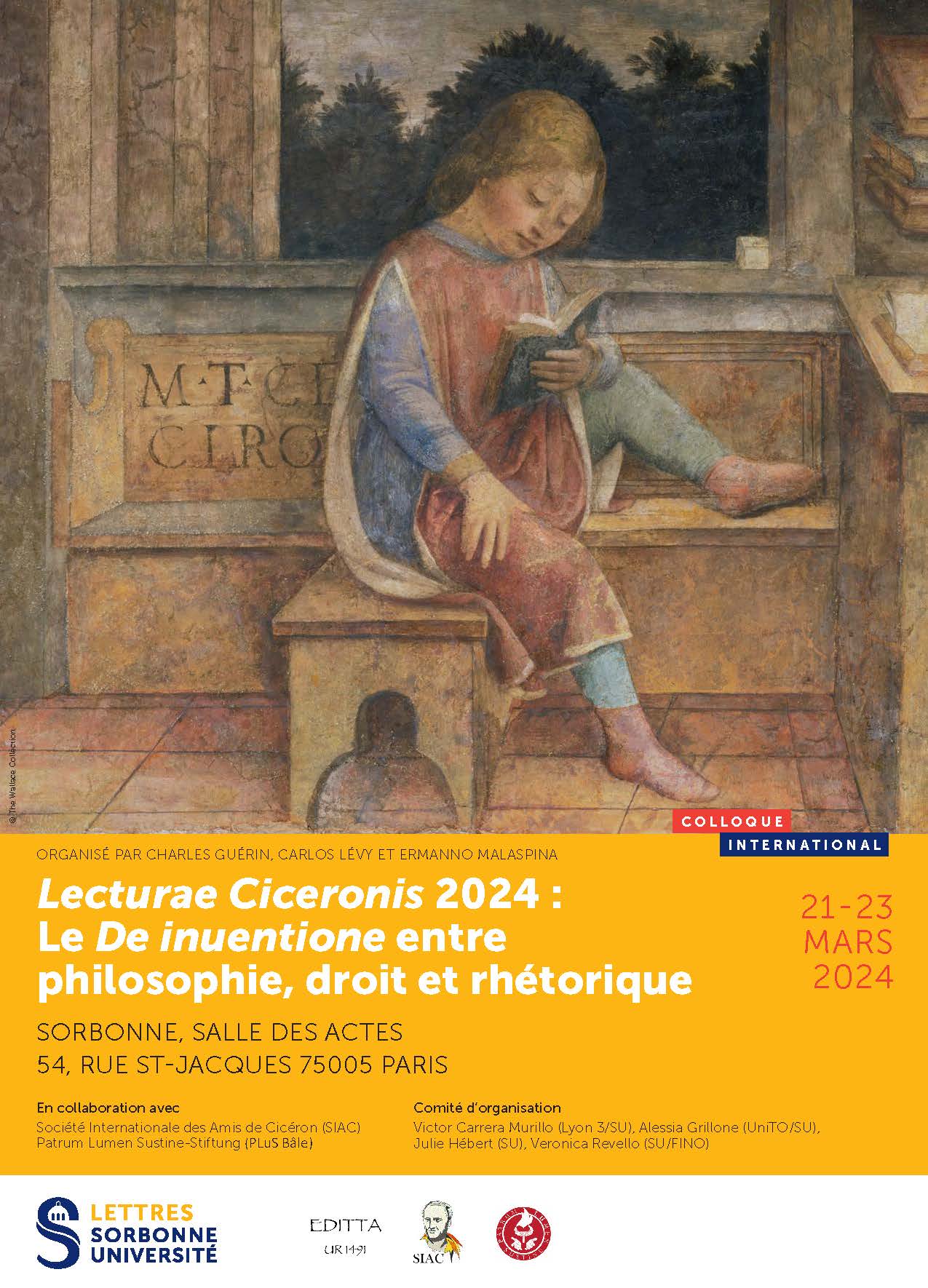Haec argumenta locos communes appellamus. Cicero’s Concept of the Commonplace in De inventione
DOI:
https://doi.org/10.13135/2532-5353/11654Abstract
Cicero’s De inventione has often been neglected as the immature work of a young man. However, among other valuable aspects, it provides a particularly detailed explanation of the locus communis. As the understanding of the term is quite inconsistent in contemporary research, this paper will explore Cicero’s concept of the locus communis and highlight its specifics with regard to function and design. As will be shown, Cicero conceives of it as a highly sophisticated feature of rhetorical amplificatio and a most challenging task both in content and form. Cicero’s concept must therefore be clearly distinguished both from the loci argumentorum (understood as search formulae) and from the modern understanding of the commonplace.
Downloads
Downloads
Published
How to Cite
Issue
Section
License

This work is licensed under a Creative Commons Attribution-ShareAlike 4.0 International License.
Authors who publish with this journal agree to the following terms:
- Authors retain copyright and grant the journal right of first publication with the work simultaneously licensed under a Creative Commons Attribution License that allows others to share the work with an acknowledgement of the work's authorship and initial publication in this journal.
- Authors are able to enter into separate, additional contractual arrangements for the non-exclusive distribution of the journal's published version of the work (e.g., post it to an institutional repository or publish it in a book), with an acknowledgement of its initial publication in this journal.


 Ciceroniana On Line is recognised by ANVUR (the National Agency for the Evaluation of the University System and Research) as a CLASS A journal for the Sciences of Antiquity, Philology, Literature and History of Art (
Ciceroniana On Line is recognised by ANVUR (the National Agency for the Evaluation of the University System and Research) as a CLASS A journal for the Sciences of Antiquity, Philology, Literature and History of Art ( The journal is included in DOAJ. The DOAJ listing of the journals is available at
The journal is included in DOAJ. The DOAJ listing of the journals is available at  The journal is indexed in
The journal is indexed in  The journal has been included in ERIH PLUS. The ERIH PLUS listing of the journals is available at
The journal has been included in ERIH PLUS. The ERIH PLUS listing of the journals is available at 
